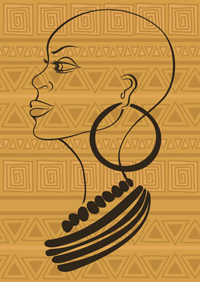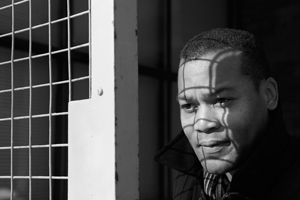| Profiles > Philanthropy > National Urban League | |||||||||||||||||
| National Urban League | |||||||||||||||||
|
|||||||||||||||||
|
NUL employs a five-point strategy, tailored to local needs to implement the mission of its movement.
Education and Youth Empowerment: Ensuring that all children are well-educated and prepared for economic self-reliance in the 21st century through college scholarships, early childhood literacy (head start), and after-care programs. Urban Youth Empowerment Program (UYEP) Funded by the United States Department of Labor, UYEP engages at-risk and adjudicated youth for entry into the workforce through a comprehensive set of services, including case management, restorative justice, education, mentoring, internships, and on-the-job training. The program also offers the following wraparound services: housing assistance, legal advice and tax services. The program historically targets youth 18-24 years old, but has been further developed to include youth aged 14-17. In addition to improving vocational and educational skills, UYEP aims to help participants regain their communities’ trust through service-learning projects. The youth are given the opportunity to give back to their community and make reparations for past offenses. |
||||||||||||||||
|
HELP PRESERVE FINANCIAL AID FOR BLACK STUDENTS
NUL, in partnership with the Bill and Melinda Gates Foundation, is formulating recommendations to improve the student financial aid system. The project aims to explore ways to make college more affordable, while providing students the support necessary to earn meaningful credentials. |
|||||||||||||||||
|
|||||||||||||||||
|
|||||||||||||||||
| NUL has come a long way since 1910. Today, more than 100 local affiliates of the NUL are located in 35 states and the District of Columbia. They provide direct services to more than two million people nationwide through programs, advocacy, and research.NUL is an organizational member of the "Coalition to Stop Gun Violence", which advocates gun control. NUL's current President, Marc Haydel Morial (born January 3, 1958), is an American political and civic leader. He served as mayor of New Orleans, Louisiana, from 1994-2002. Mr. Morial is the son of New Orleans' first African-American mayor, Ernest N. "Dutch" Morial, and teacher Sybil (Haydel) Morial. Morial graduated from Jesuit High School in 1976, and then received a bachelor's degree in economics at the University of Pennsylvania in 1980. He joined the Alpha Phi Alpha fraternity, and then earned a Juris Doctor degree in 1983 from Georgetown University in Washington, D.C. Under the leadership of Morial, NUL has secured more than $120 million for minority businesses. Due to such advances, NUL appears to be in a solid position to help African Americans reach new heights. In April 2013, NUL released its State of Black America 2013 report, which commemorates the 50th anniversary of the 1963 March to Washington for Jobs and Freedom and the 150th anniversary of the "Emancipation Proclamation" -- two historical events of importance to African Americans. The subtitle of the report -- 50 Years of Uneven Progress -- acknowledges the undeniable progress since the 1963 March, but also the remaining disparities and the harm from the recent financial collapse and the ensuing economic crisis and jobs deficit.The impact of civil rights measures passed during the Civil Rights Movement and the affirmative action programs policies that followed is seen in the gains African Americans have made in education and other areas. | |||||||||||||||||
| More African Americans complete high school. Only 15% of African American adults today lack a high school education, compared with 75% of adults 50 years ago. This represents a significant closure of the high school completion gap in 50 years. More African Americans attend college - Today there are more than triple the number of African Americans (aged 18-24) enrolled in colleges than there were 50 years ago. More African Americans hold college degrees -- For every college graduate in 1963 there are five now. Gains in education are tied to an increase in living standards. African Americans in poverty -- Since 1963, the number of African Americans living in poverty has declined by 23%. Children living in poverty -- The percentage has decreased by 22% in last 50 years. More African Americans are homeowners -- Since 1963, the percentage of African Americans who own their homes has increased by 14%. While African Americans have experienced tremendous gains in education (levels) since the 1963 March to Washington, and have ascended, the distance between blacks and whites has not changed much over the last 50 years. Unemployment -- The unemployment gap has only closed slightly since 1963, and the unemployment rate for African Americans remains twice that of whites -- regardless of education, gender, region, or income level. The income gap persists -- In 50 years, the income gap between African Americans and Whites closed by just 7%. The wealth gap is growing -- Net wealth for African American families dropped 27% during the recession. Disproportionate poverty persists -- African Americans make up 14% of the population, but account for 28% of Americans living in poverty. | |||||||||||||||||
| To Donate: www.nul.org | |||||||||||||||||
|
Credits
http://en.wikipedia.org/wiki/National_Urban_League http://www.britannica.com/EBchecked/topic/405560/National-Urban-League http://www.iamempowered.com/programs-and-initiatives http://ourfuture.org/20130410/the-state-of-black-america-progress-made-but-far-to-go |
|||||||||||||||||











